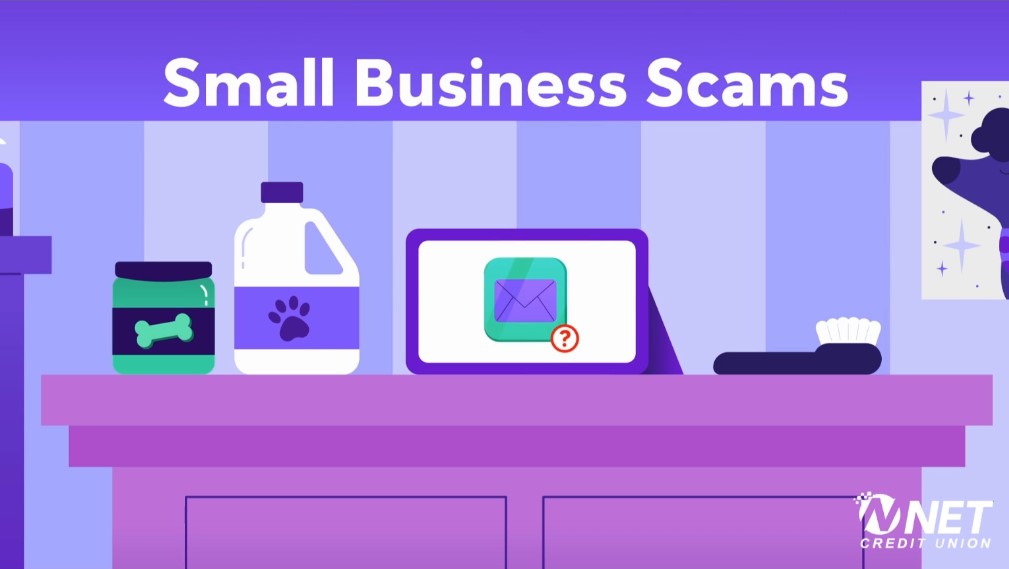Protect Your Small Business from Payment Scams
It is often assumed that payment scams only happen to individuals, but small businesses are also frequent targets for scammers. These maneuvers can often go unnoticed because the scam is embedded within typical business operations. The best line of defense is knowing what to look for.
Here are three types of scams targeting small businesses:
Fake Invoices. A scammer will send a fake invoice hoping to trick a business owner, or one of their employees, into paying for products or services they never ordered or received. Their hope is that the invoice will blend in with the others and will be paid without anyone giving it a second look. The fake invoice could be for office supplies, domain hosting or other services, and it can arrive via email or regular mail.
Intentional Overpayments. A customer overpays for a product or service. That may not sound like a scam, but it can be. After overpaying with a check or credit card, the scammer contacts the business with an apology for the overpayment and asks for a refund of the excess amount through a digital payment, pre-loaded debit card, or a wire transfer. After the refund is completed, the business owner discovers that the original check has bounced, or the credit card used for the purchase was stolen. Now the business has issued a refund for a payment they never actually received.
In another scenario, the scammer claims to make an online payment for more than the amount due. They present a fake receipt for the purchase and claim that the funds are being held by the payment provider until the overpaid amount has been refunded. Like the scenario above, after the refund is issued, the original payment never comes through.
Office Supply Scam. A business receives an unexpected phone call from someone claiming to represent a reputable office supply company, perhaps one there is already an existing business relationship with. The caller tries to sell surplus merchandise at a reduced price, citing a cancellation or over-order by another purchaser. A payment is made, but the merchandise never arrives.
Here are ways businesses can protect themselves from these types of scams:
- Pay close attention to invoices and other requests for payment. Make sure items have been received and services completed. Check with employees to verify who placed the order and confirm the payment should be processed.
- Conduct regular audits of all financials and keep documentation for all orders and purchases. This will help to detect fake accounts and invoices.
- Establish payment authorization procedures, including a multi-person approval process for transactions above a certain dollar amount.
- Understand your payment options. Digital payments can be quick and efficient, but when purchasing goods or merchandise, a credit card may be a better option. Many credit card companies offer built-in buyer protections for cardholders. Check the terms and conditions of your credit card to see what’s offered. Avoid paying any vendor using pre-paid debit cards and gift cards, which can be untraceable if the vendor doesn’t fulfill their commitment.
- Educate employees. If the staff knows about these scams, they’ll be more likely to spot one and avoid falling victim.
Above all, slow down and ask questions. Never be rushed into making a payment. Urgency is a tactic scammers use to steal money before the victim has time to think it through.
To learn more about online scams, and ways to protect yourself, visit https://netcreditunion.com/no-more-fraud/.



Recent Comments